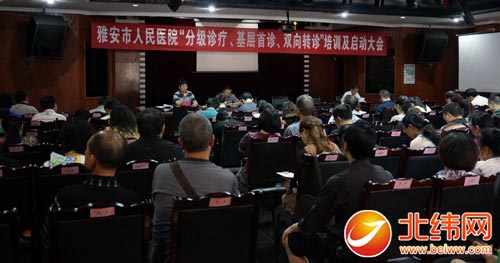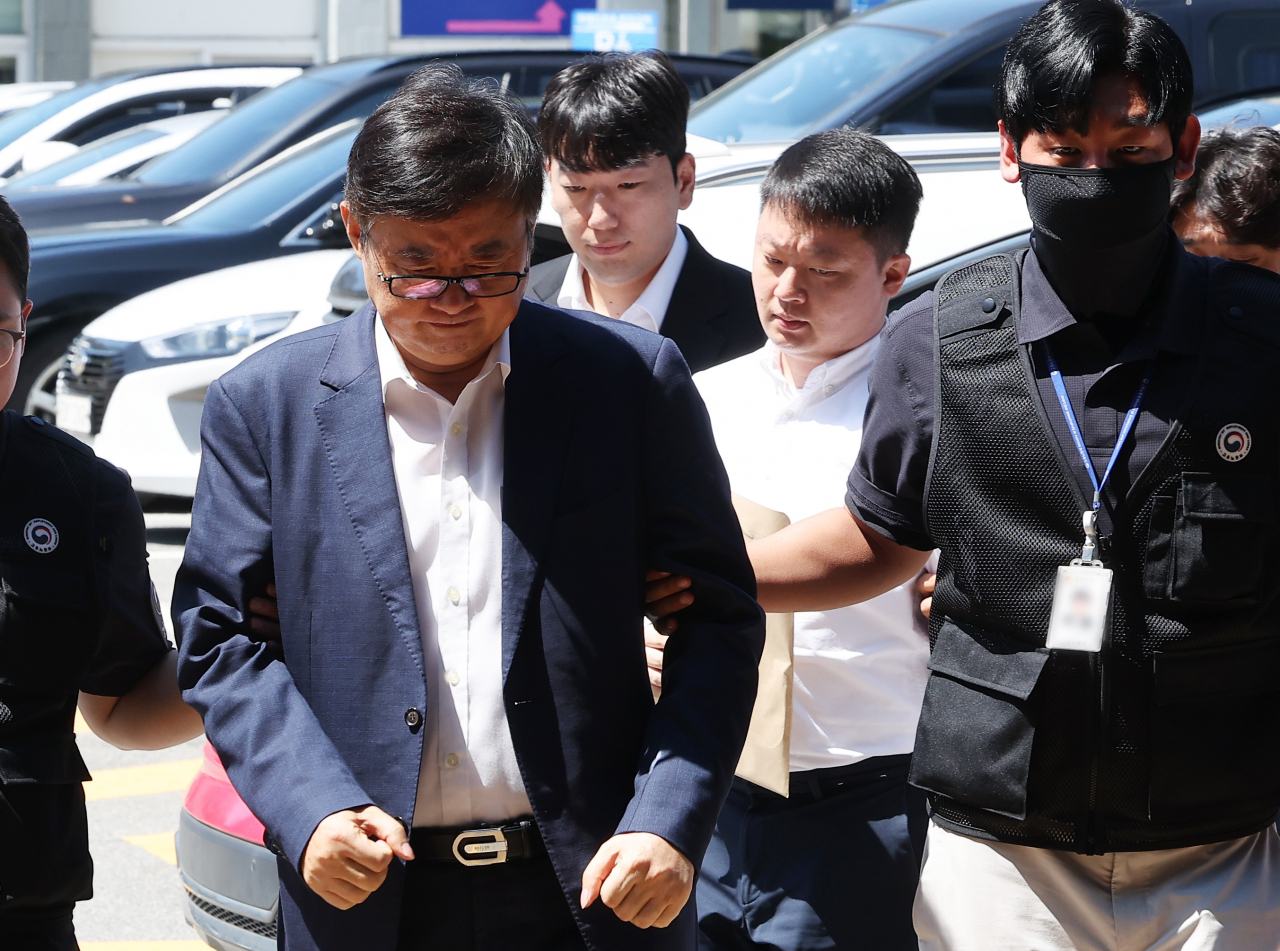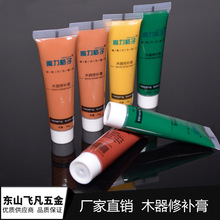Is Ben Smith’s column about Ronan Farrow too good to be true?
It was a tantalizing story, written by the New York Times’ freshly poached media columnist and published with an attention-grabbing headline: “Is Ronan Farrow Too Good to Be True?”
In it, the columnist, Ben Smith, suggests something troubling about the New Yorker’s Ronan Farrow: What if one of the country’s most seemingly unimpeachable reporters wasn’t actually telling the whole truth but, instead, prioritizing storytelling to the point of ignoring necessary facts?
Reporters everywhere—but at the New York Times especially—could hardly contain their glee. Nearly everyone, it seemed, had been waiting for someone to take the first swing at one of the most widely praised journalists working today, and it made sense that one of the first attempts should come from Smith.
AdvertisementComing to the Times after an eight-year stint as editor in chief of BuzzFeed, Smith has impressed readers as an unflinching critic of the journalism business, unafraid to call out inconsistencies and hypocrisies—even if means going after his own publication (in his debut column, no less). This most recent piece sets out to paint Farrow as occasionally incautious or even negligent, driven by his tendency to prioritize what Smith (and some of his new Times colleagues) like to call “resistance journalism.” Smith describes this mentality as one where, “if reporters swim ably along with the tides of social media and produce damaging reporting about public figures most disliked by the loudest voices, the old rules of fairness and open-mindedness can seem more like impediments than essential journalistic imperatives.”
But an examination of his Ronan Farrow column reveals a shakiness in his indictment. Had Smith taken a more rigorous approach to presenting his findings, he would have undermined his own argument. So instead, Smith chose to perform broad-mindedness, sacrificing accuracy for some vague, centrist perception of fairness. And in doing so, he opened the door for Matt Lauer to build on Smith’s own debatable representations, granting Lauer the legitimacy bestowed by the Times in the process.
Some of the flaws in Smith’s arguments are apparent even without additional context. In one instance, Smith complains that in Farrow’s initial report on Harvey Weinstein, Farrow writes that Lucia Evans, one of Weinstein’s accusers, “told friends some of what had happened, but felt largely unable to talk about it.” Later, a friend of Evans’ who had been with her when she met Weinstein told a New Yorker fact-checker “that ‘something inappropriate happened,’ ” between Evans and Weinstein, but didn’t elaborate. Smith confirmed to me over email that he sees no inconsistencies between those two accounts.
Advertisement Advertisement Advertisement AdvertisementThe supposed issue, instead, is that “the witness later told a New York Police Department detective something more problematic: That Ms. Evans had told her the sexual encounter with Mr. Weinstein was consensual.” This eventually resulted in the judge dismissing the charge. But as New Yorker website editor Michael Luo noted in a Twitter thread pushing back on several of Smith’s claims, that happened after, and apart from, Farrow’s reporting for the New Yorker.
Advertisement14/ We disclosed that the friend could not confirm specifics, except that she had witnessed the meeting between Weinstein and Evans. That the friend later said something different to prosecutors does not make our reporting any less diligent.
— Michael Luo (@michaelluo) May 18, 2020
Smith wrote to Slate, “The point I made is that reporters typically make an effort to be transparent about what they know.” It’s true that there was room for Farrow to be more specific about the extent of the corroboration he had, though it’s not clear how doing so could have possibly prevented what happened later in court.
AdvertisementDirectly after that, Smith recounts a part of Farrow’s book that describes Matt Lauer assaulting Brooke Nevils, a junior employee, who afterward ran to tell a producer whom she’d recently started dating. Smith learned the identity of this anonymous NBC producer, who told Smith (on the condition he not be named) that neither Farrow nor his fact-checker ever called him to corroborate and that “he doesn’t remember the scene that was portrayed in the book.” Still, Farrow told Smith over email that he was “confident that the conversation took place as described and it was verified in multiple ways.”
Advertisement AdvertisementYou can certainly argue that Farrow should have been more transparent about what those verification methods were, or at least could have indicated if he was unable to do so for the sake of protecting his sources. Smith, however, takes issue with something else entirely:
Mr. Farrow did not share his methods. But this much is clear: Mr. Farrow and the fact checker never called the producer. And if they had, that element of the story would have been much more complicated—or would never have appeared in print.
A lot happens on the journey from one side of that dash to the other. It’s true that Farrow’s account would have been complicated if it had included a source who said he had no recollection of the scene in which he appeared. But without knowing what methods Farrow used to verify Nevils’ account—it’s worth noting that, in the book, Farrow writes that Nevils told friends as well as colleagues and superiors at NBC of the assault—it’s a big leap to suggest the scene would have been knocked out entirely, unless you want to claim that Farrow is lying about the verification. Smith, however, does not seem to want to do that.
Advertisement Advertisement AdvertisementOne point in Smith’s story in particular that seemed to receive vigorous, near-universal head-nodding across Twitter was the 500 or so words he dedicated to Farrow’s recounting of his experience with Hillary Clinton during the course of his Weinstein investigation. Here’s how Smith characterized Farrow’s argument (bolding ours):
Advertisement AdvertisementMr. Farrow’s other irresistible conspiracy has even less to support it: that Hillary Clinton, whom Mr. Farrow had once worked for at the State Department, also sought to kill his reporting and protect Mr. Weinstein.In “Catch and Kill,” Mr. Farrow described receiving an “ominous” call from Nick Merrill, a spokesman for Mrs. Clinton, in the summer of 2017 saying his Weinstein reporting was “a concern.” “It’s remarkable,” Mr. Farrow told The Financial Times about Mrs. Clinton during his book tour, “how quickly even people with a long relationship with you will turn if you threaten the centers of power or the sources of funding around them.”
Smith then goes on to say that Farrow had “misinterpreted” the call and that Smith had spoken to Merrill, who explained that in fact he was merely trying to figure out whether he should have Clinton pull out of her planned documentary with Weinstein. Smith then says that while Merrill was unable to corroborate that version of things, “another reporter [Merrill] spoke to at the time about Mr. Weinstein shared with me text messages that back Mr. Merrill’s account, and contradict Mr. Farrow’s.”
AdvertisementIt’s an awful lot of effort to go through to disprove something that, as far as I can tell, Farrow has never once claimed. Here, again, is Smith’s description of Farrow’s claim about Clinton:
AdvertisementMr. Farrow’s other irresistible conspiracy has even less to support it: that Hillary Clinton, whom Mr. Farrow had once worked for at the State Department, also sought to kill his reporting and protect Mr. Weinstein.
It leaves very little room for interpretation. Any reasonable person reading these words would walk away believing that, at some point, Farrow made the argument that Hillary Clinton had actively attempted to shut down his reporting on behalf of Harvey Weinstein.
Until Monday, I hadn’t read Catch and Kill, and I was curious to see exactly what words Farrow had used in his accusation of Clinton. After repeated scouring of both Farrow’s book and every interview on the subject I could find (surely I must have missed something, I kept telling myself), it was clear that Farrow had never made any such claim.
AdvertisementHe begins the relevant portion of the book by discussing his plans to interview every living secretary of state for a separate project, and how an interview with Clinton had finally been set after some back-and-forth. He then goes on to describe the call:
Advertisement Advertisement AdvertisementAdvertisement AdvertisementThe afternoon of the meeting with Harris, as I pushed through the downpour and into my building’s front door, a call came in from Nick Merrill, Clinton’s flack. We discussed the book briefly, and then he said, “By the way, we know about the big story you’re on.”
I sat down on one of the chairs in my building’s lobby. “Well, Nick, I’m probably working on a lot of stories at any given time.”
“You know what I mean,” he said.
“I really can’t say anything.”
“Well, you know, it’s a concern for us.”
I felt a rivulet of rain run down my neck. “Can I ask who said this to you?” I said.
“Maybe off the record, over drinks,” he replied. “Let’s just say people are talking.”
When I turned the conversation back to the interview with Clinton, he said that she was “really busy with the book tour.” I pointed out that this was why we’d scheduled the interview for before the book tour. “Like I said,” he reiterated, as if he hadn’t heard this, “really busy.” Over the ensuing weeks, every attempt to lock a date for the interview yielded another terse note that she’d become suddenly unavailable. She’d injured her foot. She was too tired. Clinton, meanwhile, was becoming one of the most easily available interviews in all of politics.
It’s here that, were Farrow alleging a Weinstein-Clinton conspiracy, he might lay out exactly how he believed these powers to be working together against him—how Clinton’s apparent reluctance to cooperate with the secretaries of state project he was reporting demonstrated that she was also trying to kill his Weinstein reporting.
Instead, and as Farrow himself pointed out on Twitter, he offers Merrill’s version of events, something Smith makes no mention of. “Later, Merrill would swear up and down that Clinton’s sudden reticence was coincidental,” Farrow writes.
AdvertisementWhat Smith does use, however, is a single word from the sentence that followed. Stripped of context, Smith’s column makes it sound as though Farrow simply told of an “ominous” call as a way of setting the scene, an attempt to make Clinton’s lackey sound as nefarious as possible. But Farrow’s full context presents something that feels altogether different:
AdvertisementAdvertisement AdvertisementLater, Merrill would swear up and down that Clinton’s sudden reticence was coincidental. Whatever the motivation, it felt ominous—another screw turning, another sign of my life outside the story shrinking. It was hard not to sense a pattern forming: each time we came back to our bosses with more reporting, word of the story seemed to spread farther.
Again, nowhere is there any assertion that Clinton was working with Weinstein or trying to prevent Farrow from continued reporting. It does imply that powerful people don’t like to be inconvenienced and they’ll resent you for it, but that was never really in question.
The closest Farrow gets to making this explicit was during an interview with the Financial Times, which Smith partially quotes (that portion in bold):
AdvertisementAdvertisement AdvertisementIn 2011, when Clinton was secretary of state, she appointed Farrow as her special adviser for global youth issues; the pair worked together “for years”, he says. But when word got around that Farrow was looking into the Weinstein story, he felt that his relationship with the politician—a beneficiary of donations from the producer—started to cool.
Was that a painful revelation?“It’s remarkable how quickly even people with a long relationship with you will turn if you threaten the centers of power or the sources of funding around them,” says Farrow evenly. “Ultimately, there are a lot of people out there who operate in that way. They’re beholden to powerful interests and if you go up against those interests, you become radioactive very quickly.”
In context, it’s clear Farrow is talking about their suddenly strained relationship. How Smith got an “irresistible conspiracy” by Clinton “to kill his reporting and protect Mr. Weinstein” from what you see above is unclear. The only other major outlet I could find that seems to have reached a similarly incorrect conclusion was National Review, which ran the erroneous headline “Ronan Farrow: Clinton Associates’ Attempts to Kill Weinstein Story Show How ‘Power Protects Power’ ” over an otherwise correct piece.
AdvertisementI asked Smith where he had seen Farrow making this claim, as I assumed there must be some interview where Farrow at least got closer to saying what Smith has accused him of saying. Instead, Smith wrote back:
AdvertisementI’d refer you to the FT quote I used. He described Clinton’s pressure on him as an example of “power protects power” in the same context. That’s also the clear implication of the passage in the book in which he describes Merrill’s call as “ominous.”
But in the interview where Farrow talks about how “power protects power,” he also says, “There have been a lot of politicized headlines saying, you know, Hillary Clinton squashed the Weinstein story, and that’s not really what the book asserts.” As for the “power protects power,” quote, the full context does not seem to support Smith’s conclusion:
Advertisement Advertisement AdvertisementIt is an example of how power protects power. And Harvey Weinstein was one of Hillary Clinton’s big Hollywood bundlers, he brought in a lot of money for her, they were friends. And it was a personal moment of gut punch to me, like so many of these plot twists in this book, where people that I thought would support that kind of reporting actually were very leery of it.
It seems fairly clear here that Farrow is talking about how Clinton’s close relationship with Weinstein caused her to see his reporting as a threat to her, personally, and that he was troubled that she, like many powerful individuals, seemed more concerned with her own reputation than with finding justice for Weinstein’s victims. That is a far, far cry from implying that she was somehow involved in a conspiracy to kill his story with Weinstein himself. But then, that’s what happens when a new columnist wants to tell his stories as dramatically as he can. Farrow, for his part, told me, “Ben’s conclusions here just aren’t supported by what I have actually written or said.”
Advertisement AdvertisementThis Clinton episode, as many have already pointed out, would also seem to go against Smith’s depiction of supposed “resistance journalism.” If readers are eager to read stories that denounce Donald Trump, how would a story that made Hillary Clinton look bad serve to pander to them? In an effort to figure out exactly what he understood the term to mean, I asked him about a similar episode that occurred during his time at BuzzFeed.
In January of 2019, BuzzFeed ran a report titled “President Trump Directed His Attorney Michael Cohen to Lie to Congress About the Moscow Tower Project.” In it, reporters Jason Leopold and Anthony Cormier claimed that Michael Cohen had told the special counsel’s office that “the president personally instructed him to lie” to Congress, citing two “federal law enforcement officials” as their source.
Advertisement Advertisement“Cohen’s testimony,” they wrote, “marks a significant new frontier: It is the first known example of Trump explicitly telling a subordinate to lie directly about his own dealings with Russia.” Twenty-four hours afters the post went up, the special counsel’s office issued a rare denial, saying that BuzzFeed’s description and characterization “are not accurate,” the first public statement regarding potential evidence since the office’s creation in May of 2017.
In a defense of BuzzFeed’s initial story after the release of the Mueller report—which stated that investigators were unable to establish that Trump had told Cohen to lie—Smith revealed precisely what their characterization had been based on:
Advertisement Advertisement Advertisement AdvertisementOur story was based on detailed information from senior law enforcement sources. That reporting included documents—specifically, pages of notes that were taken during an interview of Cohen by the FBI. In those notes, one law enforcement source wrote that “DJT personally asked Cohen to say negotiations ended in January and White House counsel office knew Cohen would give false testimony to Congress. Sanctioned by DJT. Joint lawyer team reviewed letter Cohen sent to SSCI about his testimony about Trump Tower moscow, et al, knowing it contained lies.”
The law enforcement source also wrote: “Cohen told OSC” — the Office of Special Counsel — “he was asked to lie by DJT/DJT Jr., lawyers.”
While this makes very clear why Cohen believed he was being directed to lie, there’s nothing there that precisely counts as “Trump explicitly telling a subordinate to lie directly about his own dealings with Russia” to Congress. It is, however, “damaging reporting about public figures most disliked by the loudest voices” that made for a very compelling story. Surely this was the sort of resistance journalism Smith was referring to, right?
“No,” Smith told me over email, “and I’m glad you asked because I think there is a relevant element there. The story was accurate, specific reporting that’s been borne out by subsequent disclosures. The part of this that tied into what I see as the ‘resistance’ thread was the way in which the rest of the media reflexively embraced Robert Mueller’s spokesman’s vague claims about the story without any evidence, at a moment when Mueller was the icon of the resistance.”
In other words, Smith argued that that the “resistance” mentality had motivated people to uncritically believe the government, even when the government was knocking down a story damaging to Donald Trump. It’s hard to imagine how Farrow or anyone could bend their reporting to fit a doctrine if the doctrine were that much of a moving target.
I then asked if he believed that Mueller’s status as a resistance hero really held more sway than Trump’s status as a resistance enemy. Smith responded:
I guess I’m not confident about that weighting of those things. To put it differently, I was surprised that reporters at mainstream outlets took a prosecutor at his word in the context of a vague denial that, without the resistance narrative that elevated Mueller, reporters wouldn’t take on its face.
Recently in Politics
- What You’re Not Seeing From the Darién Gap
- Congress’ Perpetual Coup Machine Is Merely Resting
- The Story About a Worm Eating RFK Jr.’s Brain Is Not As Funny As It Sounds
- I Read the Embattled Columbia President’s Old Book About What We Owe Each Other. It’s … Not Good.
If Smith is surprised that mainstream reporters would reflexively defer to the judgment of prosecutors, I have some bad news for him about the New York Times.
Tweet Share Share Comment(责任编辑:新闻中心)
- ·The Weird, Wonderful World of Water Towers
- ·解耦、重构、交互、共生!规模化畜禽饲养工程高质量发展研讨会顺利举行
- ·名山区蒙阳镇统筹实施确保灾后重建顺利进行
- ·1—8月我市房地产开发投资增长20.5%
- ·The Analog Embrace: How Some Experiences Are Surviving the Digital Age
- ·芦山县龙门乡五星村老两口传承芦山花灯
- ·签约率90.89% 恒天项目征地搬迁仅剩45户
- ·惠州烟草创设乡村法律诊所,打造新时代好“枫”景
- ·Best smart home deal: The Amazon Smart Thermostat is just $63.99
- ·快评丨不做“菜”改做“锅”,预制菜赛道有了新玩法












